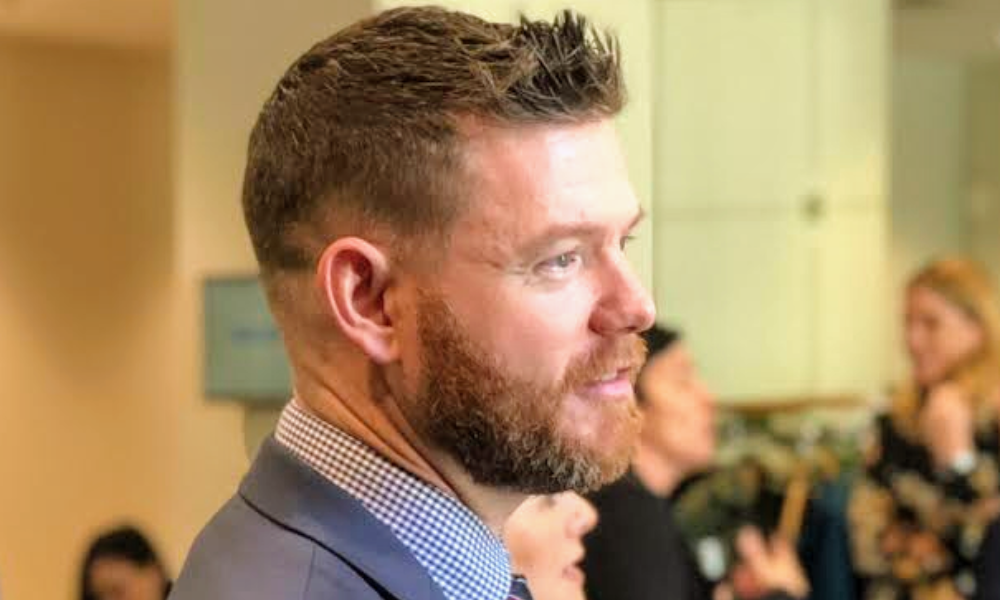
'If employers see the ageing workforce as a negative, that will create more challenges'

New Zealand doesn’t have a legal requirement to retire at any given age but because superannuation kicks in at 65, that’s been a popular milestone.
However, a newer trend HR leaders need to know about is bucking that trend: “the Great Unretirement.”
“The problem with retirement is you never get a day off,” said Philip ‘Scoop’ Chandler. Earlier this week, the almost 64-year-old celebrated his 38th year of working as a journalist for the Mountain Scene newspaper in Queenstown, and he says he has no plans to retire on his 65th birthday next year.
“I often joke to people that if I retired, I’d just start drinking earlier every day, but a lot of my whole life is tied up with my work and I’ve got so much accumulated experience, why pull the plug? If it’s not broke, don’t fix it,” he said.
Despite having a standard 40-hour employment contract, Chandler goes to work every single day of the week and during his 38 years, he’s actually never had a day off, not even a sick day – at one stage, he’d racked up over 400 hours of annual leave.
According to Statistics New Zealand, the reality in Aotearoa is that most people work to the age of 68 or 69. Currently, there are around 200,000 people in the workforce who are over the age of 65 – roughly a quarter of the total age group, making it the fifth most ageing workforce in the OECD.
In New Zealand, birth rates are declining so the population in general is ageing, but Ranstad’s recent Workmonitor Employment research report uncovered other contributing factors to the unretirement trend. 79% of people surveyed say that their financial position is preventing them from retiring as early as they want.
“In New Zealand, we take a relaxed attitude towards retirement planning; people don’t start planning for their retirement until their late 40s or early 50s, which as we know is far too late,” said Ian Scott, Randstad’s GM of Talent Solutions, adding that we have a slightly lower wage economy then most OECD countries.
The report also uncovered people who aren’t retiring because they:
“For the first time, we will have six or seven generations in the workforce and that creates a unique set of challenges, so organisations really need to think about what that means,” said Scott.
Economist Cameron Bagrie told the NZ Herald last year, “There are about 800,000 people aged 65-plus, and 200,000 people still working. Scroll that out for 30 years when the population over 65 is up around 1.4 million and you're talking an even bigger number.”
Despite the plethora of data informing us of our aging workforce, Te Ara Ahunga Ora, the Retirement Commission says that only 14-18% of employers are actively planning for an ageing workforce.
New Zealand’s ageing workforce needs to be embraced by organisations because there’s no avoiding it, said Scott.
“Talent is getting older, birth rates are dropping and we’re not able to fill those gaps so actually the longer people can stay in the workforce, the better,” he said.
“This is when companies really need to think about how they’re adapting the roles an older generation can fill within their organisations. There’s a challenge for employers to meet and if they see the ageing workforce as a negative, that will create more challenges but if they see it as an opportunity, they will create the productivity that they need at the back end.”
It’s predicted by the World Economic Forum that 75 million roles will be lost or affected due to automation and but on the flipside, automation and AI will create 97 million new roles and with those new roles comes a whole new set of ‘Future Skills’.
The World Economic Forum lists the top 10 future workplace skills as
“That creates a huge opportunity,” said Scott. “If you look at the skills of the future, most of them are skills the older generation has in spades so actually we can embrace the skills they’ve got and marry them to what we’re going to need as new jobs appear.”
The challenge for employers is being brave enough to have that conversation, to ask what it is they’re looking for, he said.
“They may not want to work for you forever but if they want to stay, how do they create a pathway where that is possible?
“Why would we want people to retire? We want them to stay in the workforce so that we can benefit from the skills that they can help us develop in a younger generation.”
How leaders help people to continue that journey will make a huge difference in how effective and productive our workforce can be, said Scott.
“Unretirement may seem like a bad thing but let’s embrace it and turn it into a good thing.”